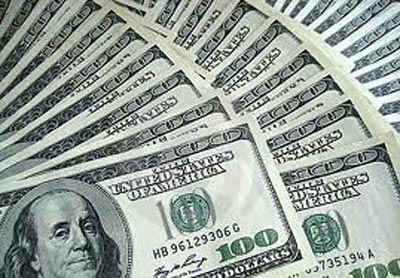Friday, 21 August 2015 10:21
 TOKYO: Currency traders sold the dollar in Asian trading on Friday as confidence in the global economy headed south and hopes for a September US interest rate hike faded.
TOKYO: Currency traders sold the dollar in Asian trading on Friday as confidence in the global economy headed south and hopes for a September US interest rate hike faded.
The greenback slipped to 123.07 yen, down from 123.38 yen in New York and well below rates above the 124 yen level seen earlier Thursday in Tokyo.
The euro also benefited from market jitters, with the 19-nation unit quoted at $ 1.1274 and 138.77 yen, up from $ 1.1241 and $ 138.69 US trading.
“The euro may be gaining more than other currencies from the reduction in expectations of Fed tightening,” said Sean Callow, a strategist at Westpac Banking, after minutes from the US Federal Reserve released this week dampened expectations for a rate hike.
Market sentiment has dived as concerns about the global economy have peaked making the yen, seen as a safe-haven in times of uncertainty or turmoil, more attractive.
That slumping confidence is largely tied to uncertainty over China, the world’s number two economy, after the shock devaluation of the yuan last week added to fears that growth is slowing more than thought.
Japanese Finance Minister Taro Aso on Friday cautioned over the devaluations and any future manipulation of exchange rates, saying Tokyo would face a “difficult” task in responding if such moves became frequent, without elaborating.
But Aso said the cut was positive if Beijing was moving to make its currency subject to a “market-oriented system”.
Stoking economic concerns, an independent survey on Friday showed Chinese manufacturing activity slumped to a 77-month low in August, while plunging oil prices also weighed on investor sentiment.
The US Federal Reserve cited China as a red flag for global growth in the minutes of its last meeting, which lowered expectations the central bank could lift rates as early as next month. A rate rise would be a plus for dollar.
Investors were also keeping an eye on Greece, where Prime Minister Alexis Tsipras announced his resignation and called for snap elections on Thursday, as he went on the offensive to defend the country’s massive bailout after it triggered a rebellion within his own hard-left party.




























